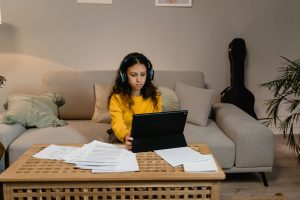
Exploring Home Education Resources in the UK: A Comprehensive Guide
Homeschooling, or home education, is popular in the UK. Many parents choose this educational technique to give their children a tailored learning experience. Thus, many homeschooling materials and support networks have emerged to help families. In this post, we will examine the many home education resources offered in the UK, offering parents thinking about or already using home education resources uk with a thorough guide.
- Curriculum and Instructional Resources
The correct curriculum and educational resources must be chosen before beginning a home-schooling adventure. In the UK, there are numerous commercial and nonprofit choices that support various educational ideologies and methods.
The National Curriculum offers a framework for the subjects and learning goals pursued in mainstream schools and is a well-liked resource. Many parents link their homeschooling to the National Curriculum to give their kids a well-rounded education.
A lot of small publishers and suppliers also create courses explicitly tailored for homeschooling. Examples include Thomas Keith Independent School which offers organised lesson plans, textbooks, and extracurricular materials explicitly designed for homeschooling.

- Support Communities and Networks
Both parents and children may experience isolation at times when they are learning at home. To address this, a number of communities and support networks have emerged throughout the UK, providing chances for interaction, teamwork, and the sharing of experiences.
- Local Home Education Groups
These organisations are made up of local families who get together frequently for educational activities, outings, and socialising. They frequently offer a welcoming environment where parents can discuss ideas, share resources, and set up opportunities for their kids to study in groups.
- Online Communities
As digital platforms have expanded, online communities have developed into an essential tool for home educators. Parents can interact with others, ask for advice, share resources, and take part in virtual learning communities on platforms like Facebook groups, online forums, and specialised websites.
- Homeschooling associations and local authorities
In the UK, local authorities are required by law to oversee the provision of home education. They can give advice, assistance, and access to neighbourhood networks and resources. Families who choose to educate their children at home can also get support, advice, and legal information through homeschooling organisations.
- Resources for extracurricular and co-curricular activities
Home education encompasses more than just academic disciplines. Parents frequently look for ways to give their kids well-rounded experiences that include extracurricular and co-curricular activities and resources.
- Sports and physical activities
Homeschooling families can frequently take advantage of classes and group activities offered by neighbourhood sports organisations, community centres, and recreation centres. Additionally, parents wishing to include physical education in their homeschooling programme can find materials and advice from national organisations.

- Arts & Creative Activities
Museums, art galleries, and other cultural institutions all throughout the UK offer homeschooling families a variety of educational materials, classes, and events. Libraries have literature, music, and art books, audiobooks, and internet resources.
Online learning platforms now offer many courses, tutorials, and interactive tools. Khan Academy, FutureLearn, and OpenLearn provide free or low-cost math, science, history, and coding resources for homeschoolers.
- Evaluation and Inspection
Inquiries about assessment and accreditation in home schooling are common among parents. Although formal tests or diplomas are not legally required in the UK, some families decide to monitor their children’s development to set a standard and make sure they are reaching the learning objectives.
- National Exams
Homeschooled kids have the opportunity to register as private candidates for national exams like the GCSE and A-Levels. Private candidates can register and access test materials thanks to the information and resources offered by awarding bodies.
- Alternative Assessment Techniques
Some families favour using different assessment techniques to evaluate their child’s development. Portfolios of work, projects, presentations, or routine evaluations by parents or tutors can all fall under this category. For an unbiased assessment of their child’s academic performance, parents may also enlist the aid of impartial examiners or qualified tutors.
Homeschooling has grown in popularity in the UK, creating a complex ecosystem of resources and support networks to meet the requirements of homeschooling families. Homeschooling parents have many choices, from curriculum materials and learning resources to support networks, extracurricular activities, and evaluation.
These technologies allow parents to provide a thorough and tailored education. The UK’s growing homeschooling population has created a complex ecology of resources and support networks. Homeschoolers can choose curriculum, learning resources, support networks, extracurricular activities, and evaluation.

As home education becomes more popular, parents have plenty of resources to help them navigate this educational path and provide a rewarding and engaging learning environment for their children.
Additionally, UK local authorities must supervise homeschooling. Local authorities must ensure quality education for homeschooled students in the UK. Regular evaluations or home education visits may be required. Homeschooling families should communicate with their local government and document their child’s development and learning.
Families homeschooling should also take advantage of the plethora of educational resources provided by libraries, museums, and educational institutions. The majority of the time, museums and galleries provide homeschooling families with instructional courses, tours, and educational materials. Numerous books, audiobooks, and digital resources are available in libraries—physical and online—to facilitate home education in a variety of subjects. These resources promote academic learning and encourage a passion for the humanities.
Distance learning programmes and online schools are available in the UK for parents looking for a more organised approach to home education. These programmes give parents access to complete curriculum packages, qualified teachers, and support networks to help them provide high-quality education to their children. With live, interactive lessons taught by British teachers offered by online schools like Thomas Keith Independent School, pupils are guaranteed to receive on-the-spot training and assistance in conformity with the English National Curriculum.
Homeschooling lets parents incorporate real-world experiences into learning. Subjects are brought to life through field trips, educational visits, and hands-on learning activities. Families can take their kids to historical places, natural preserves, educational facilities, and cultural events to give them a rich and engaging educational experience.
So, what are you waiting for? In order to get the best online homeschooling, you can visit Thomas Keith Independent School’s website and get more info about it.







